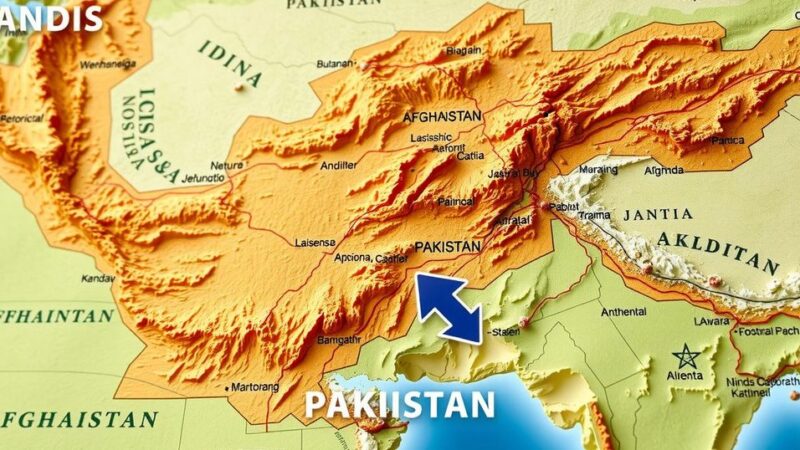Bashar al-Assad has resigned as Syria’s president and sought refuge in Russia, concluding a turbulent 24-year rule marked by civil conflict and international intervention. His government collapsed due to a rapid offensive by rebel forces amid the distraction of his foreign allies by other conflicts. Once hailed for potential reforms, Assad’s legacy has been characterized by hardline tactics and a disastrous civil war.
Bashar al-Assad has unexpectedly resigned as Syria’s president and relocated to Russia, marking a dramatic end to his 24-year regime. Only a fortnight prior, he appeared secure amidst a civil war that erupted following his violent reaction to pro-democracy protests during the Arab Spring. Support from Russia, Iran, and allied militias had previously allowed him to withstand opposing forces until Hayat Tahrir al-Sham launched a rapid offensive.
Assad’s administration unraveled within a brief period, as foreign allies were preoccupied with other conflicts, leading to a swift military collapse. With a legacy steeped in both authoritarianism and fleeting reform, Bashar al-Assad’s ascent to power was marked by controversial policies and a hardline stance in foreign affairs. His rise and fall encapsulate the complex narrative of a ruler whose government succumbed to internal dissent and international distractions.
Born on September 11, 1965, Bashar al-Assad was not initially groomed for leadership. As the second son of Hafez al-Assad, he pursued a medical career before being thrust into politics after his brother’s death in 1994. Initially, he was seen as a potential reformer, promoting modernization efforts until he resorted to brutal oppression following the onset of the civil uprising in 2011, which resulted in extensive conflict. His reliance on foreign military support, predominantly from Russia, solidified his tenuous grip on power, yet ultimately led to his downfall as those allies became preoccupied with their struggles.
Bashar al-Assad’s career in governance began after he unexpectedly ascended to Syria’s presidency following his father’s death in 2000. Initially presenting himself as a reformer, he promised to initiate a series of modernizing policies and lifted decades-long restrictions, only to revert to authoritarian measures shortly thereafter. His regime faced a pivotal challenge when anti-government protests ignited in 2011, eventually escalating into a brutal civil war that witnessed widespread violence and displacement. The international community’s response, particularly following damning allegations of war crimes and chemical weapons use, further isolated Assad, compelling him to rely on foreign military assistance, which ultimately failed to stabilize his regime during a critical offensive by rebel forces in 2024.
The abrupt resignation of Bashar al-Assad signifies not just an end to his regime, but a poignant moment in the history of Syria, shaping its future trajectory amidst ongoing turmoil. His presidency, characterized by intermittent opportunities for reform marred by violent suppression, stands as a tragic testament to the perils of absolute power and the consequences of external interventions. As the Syrian populace rejoices in the streets, the vacuum left by his exit raises questions about the future governance of a nation long dominated by his family’s iron rule.
Original Source: www.bbc.com







